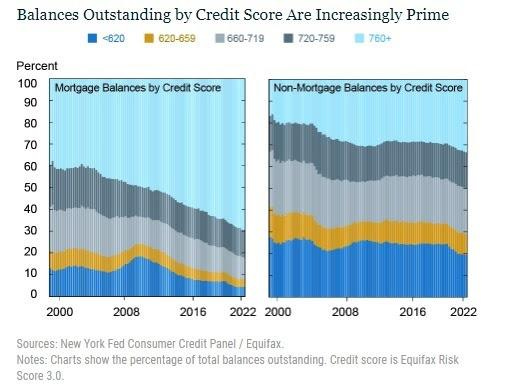We had a hot July jobs report across the board;
The payroll number was about double the market expectations.
Unemployment ticked down.
Wages were hotter.
The payroll revision from June was higher.
The Fed has threatened, since March, that they were coming after employment, as a means to contain wage pressures - to narrow the job openings to unemployed gap, and therefore damage employee and job seeker negotiating leverage on wages - raising the Fed Funds rate 250 basis points, still more than 600 basis points below the rate of inflation, hasn't delivered on the Fed's threat.
What about earnings? This tightening cycle must have crushed earnings, right?
According to FactSet, we are now 87% of the way through Q2 earnings season, and 75% of the companies have beat expectations. Earnings grew close to 7% on the quarter, better than the 4% growth anticipated at the close of the quarter in June.
What about margins? Margins must be getting crushed due to rising costs, right?
Margins have come in at 12.3%. That's higher than the five year average, and in line with Q1 (which was the fifth-highest profit margin reported for S&P 500 stocks on record).
So jobs are hot. Corporate earnings remain solid. Both consumer and corporate balance sheets, and credit worthiness, are as good as ever.
You can see below, about 70% of the total balance of mortgages are held by super-prime borrowers (760+ credit scores).
We have the hottest nominal wage growth in over forty years. We have the hottest nominal GDP growth in four decades.
It's not a demand problem. It's not a credit problem (for consumers nor businesses). It's an inflation problem;
"Real" wage growth is negative (after the effects of inflation).
"Real" GDP growth is negative (after the effects of inflation).
It's an inflation problem, by design. Thus, the Fed has bluffed on its appetite to fight inflation, and thus, Congress's response to forty-year high inflation: another massive fiscal spending package.
It's inflation by design, to inflate away unsustainable sovereign debt (globally). It's a devaluation of money, which comes with a lower quality of life.




